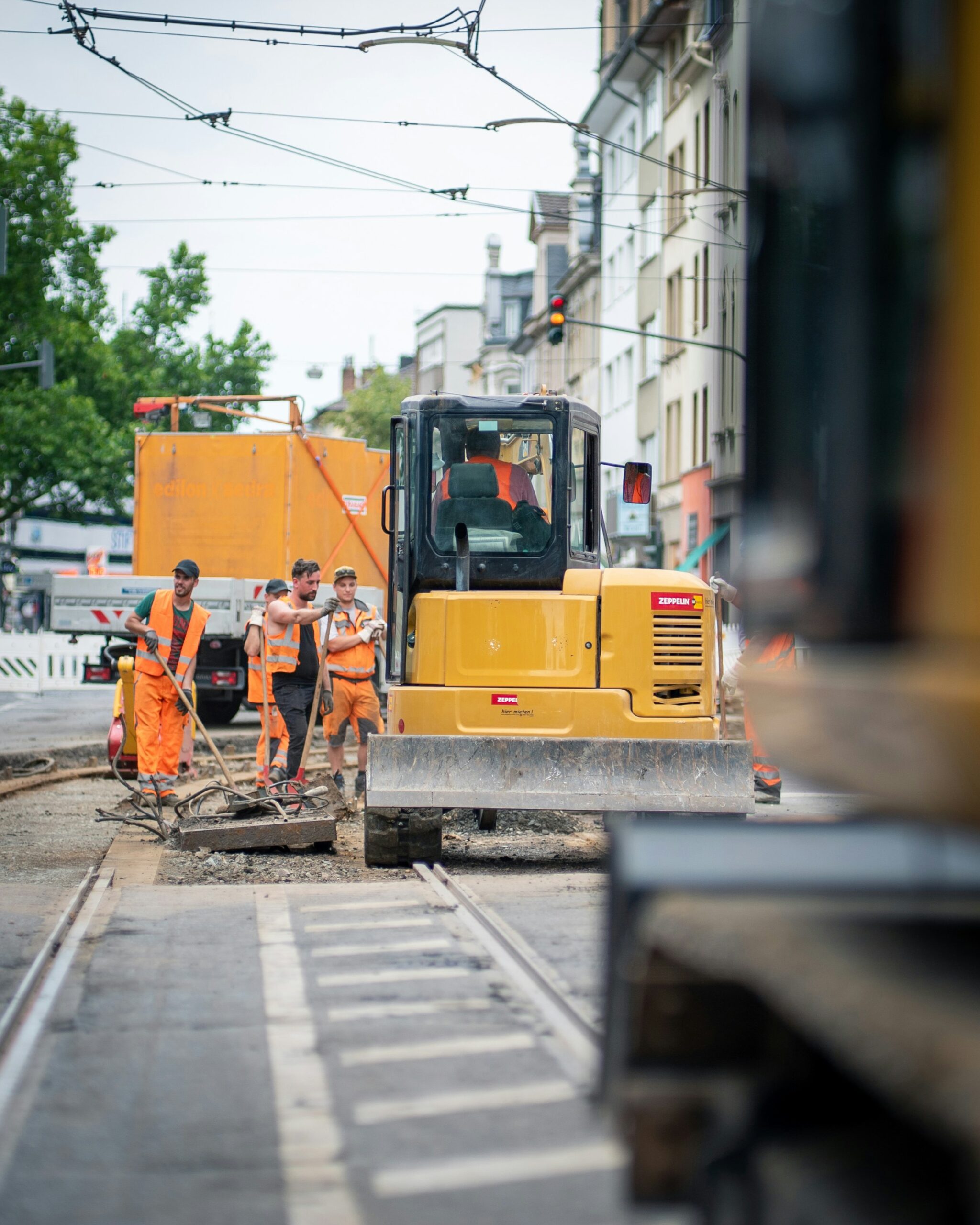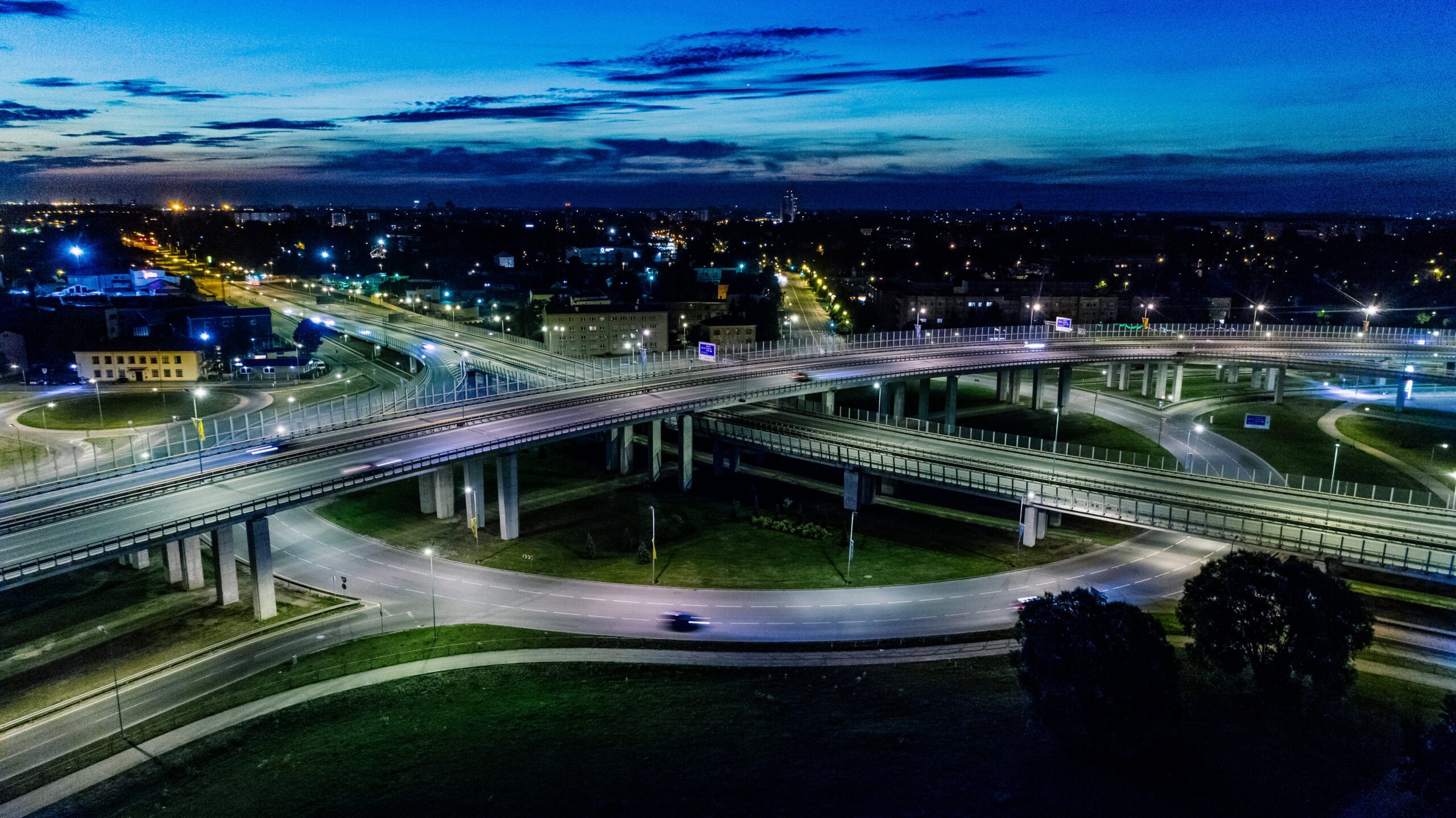
Compulsory Course - 5th Semester
Content: Introduction. Definition and description of road geometry. Propulsion and braking forces of vehicles. Movement of vehicles on curves / Traction / Road surface friction. Elements of design of horizontal design / Angle diagram. Limit values of the elements of the grading study. Design speed. Operating speed. Speed limits. Safety criteria. Topographical design elements and their limit values. Road slopes and slope assemblies. Visibility for stopping and overtaking. Administrative and functional classification of roads. Cross-sectional areas. Elements of cross section design.Typical cross sections. Calculation of spacing by approximate and exact methods. Calculation of ground motion graphically and by application of linear theory. βελτιστοποίησης. Προϋπολογισμός έργου.
Goal: Successful completion of the course will enable the acquisition of the following skills and abilities: understanding the geometric form of a road and how to describe it. Understanding of the stages and contents of a road study. Knowledge of the geometric elements of a road design both at the stage of the horizontal and sectional design of a road. Understanding of the basic criteria for selecting the values of the parameters of the design elements of a road design with emphasis on the functionality and safety of the two-lane road. Understanding of the administrative and functional classification of a road and its correlation with urban and land use planning data. Ability to determine the budget of a road. Ability to carry out a basic evaluation of road accidents and to identify the causes of accidents. Ability to carry out a basic evaluation of existing roads in terms of functionality and safety.
Compulsory Course - 7th Semester
Content: Railway: Introduction. Kinematics of Trains. Elements of Horizontal and Topographical Studies. Undergrounding of Railway Lines. Line Changes. Airports: Introduction. Types, Forms and Installation Parts of Airports. Categories of Airports. Aircraft Flight Data. Runway Length Calculation. Runways. Runway and taxiway layouts and elevation configurations. Earthworks. Economic and technical data (General principles for the preparation of economic and technical studies): Introduction. The concepts of supply and demand in transport projects, Cost elements of transport projects, Interaction of supply and demand, Resources in transport projects, Economic studies and methodology for their preparation. Financial and Economic Evaluation of Transport Projects, Financing of Transport Projects
Goal: The goal of this course is to provide students with the basic knowledge of geometric design of railway and airport infrastructure as well as the fundamental principles of transport economics and the economic and technical analysis of a transport project.


Specialization in Transportation Systems and Infrastructure Design - 8th Semester
Content: Introduction to Transport Systems Design. Models of Transport System Design. The four-step process in transport planning. Transportation Inference - theory and applications. Movement allocation - theory and applications. Choice of means - theory and applications. Patterns of discrete choice. Allocation in the network. Transport Planning Software. Real-world application of four-step model. Data Collection in Transport. Special issues in transport planning. Sustainability and low speed media.
Goal: Identification and analysis of the role, structure, characteristics, specificities and design requirements of transport systems. Formulation and implementation of the general process of designing transport systems (four-step process) and its individual methods and techniques. Application of methods and tools for estimating and forecasting travel demand, distribution, choice of mode and traffic distribution. Application of the 4-step procedure for estimating the loads on a transport network. Application of survey and data collection techniques in transport Analysis and evaluation of transport system operations and performance. The design of key elements of urban transport systems. The development of the basic structure of sustainable urban mobility plans.
Specialization in Transportation Systems and Infrastructure Design - 8th Semester
Content: Introduction to traffic engineering. Relationships between traffic variables. Theory of traffic flow and traffic capacity. Principles and calculation of traffic light programmes. Assessment of the level of service of road sections: two-lane interurban roads, interurban roads with more than two lanes, motorways. Traffic simulation principles and standards.
Goal: Understanding traffic dynamics and then understanding the operation of road sections and junctions with traffic lights. Students will possess skills in designing road infrastructure and traffic signal programs for optimal operation and will be able to evaluate it (a) through appropriate solution methodology, (b) by designing and simulating them with specialized software. The above knowledge, skills and competences are necessary for the organisation of field measurements, the study of traffic and the design of urban and interurban road networks with a view to their more efficient operation.

Specialization in Transportation Systems and Infrastructure Design - 9th Semester
Content: Design principles for at-grade and grade-seperated junctions. Assessment of the level of performance of priority level crossings and roundabouts. Assessment of the performance level of specific road elements (grid sections, motorway entry/exit branches). Assessment of the level of performance of pedestrian and cycle infrastructure. Basic concepts, relationships and road safety interventions. Intelligent transport systems.
Goal: Understanding the operation of junctions and acquiring the skills to design them for more efficient and safer operation. In addition, students will be able to evaluate the operation of junctions and specific road elements (a) through appropriate solution methodology, (b) by designing and simulating them with specialised software. The above knowledge, skills and competences are necessary for the design of level and grade-separated junctions (in terms of their geometric and functional elements, and their management) and their traffic engineering.


Elective course - 8th Semester
Content: Construction machinery, earthmoving machines, transport machines, compaction machines, concrete machines, aggregate production, operational and economic analysis of projects, scheduling & control of projects (graphical - analytical methods).
Goal: Upon successful completion of the course, the student will be able to know and understand the basic concepts, the supervisory tools of project management, the basic scheduling and resource allocation techniques for engineering projects, the main characteristics and operation of project machinery, to apply scheduling techniques for project scheduling, to analyze and cost the operation of project machinery and to apply techniques for the efficient estimation of project machinery on construction sites
Specialization in Transportation Systems and Infrastructure Design - 9th Semester
Content: Data types, structures and sources. Data Collection Methods - Measurements. Transport Data Methods - Questionnaire Surveys. Revealed & Expressed Preference Surveys. Transport Data Methods - Digital Sources. Topographical Methods of Transport Data Collection. Methodologies for traffic data processing and analysis. Fundamentals of Statistics, Methods of Descriptive Statistics and Statistical Controls in Transport. Development of Econometric Models with Transport Data - Theory and Applications - Linear Regression. Development of Econometric Models with Transport Data - Theory and Applications - Logistic, MNL and probit models. Non-parametric Models / Other Models. Large scale data in transport and analysis thereof. Applications.
Goal: Selecting the appropriate data for analysing and solving transport problems. Identify sources and ways/means of collecting transport data. Knowledge of the potential, limitations and usefulness of different types of data. Organise transport data in an appropriate way. Knowledge around basic methods of statistical and econometric processing and analysis of transport data. Organisation of field measurements for the collection of transport data. Possibilities for processing and analysing transport data. Abilities to develop and calibrate statistical and econometric models with application to transport problems Knowledge of the requirements, capabilities and problems of large-scale data management and analysis.


Specialization in Transportation Systems and Infrastructure Design - 9th Semester
Content: Demand Estimation / Calculation of Traffic Planning Metrics. Roadway Design (Topographic Background Management, Geometric Design, Paving Optimization, Interchange Design). Traffic Capacity. Road Signage and Road Insurance - Electric Lighting. Geological / Geotechnical - Slope stability of trenches / embankments. Geotechnical/Structural - Sizing/Small Wall Design. Hydraulic Design (Determination of catchment areas / Determination of flow rates, Design of backfilled and unlined ditches, Sizing / Design of Cave Ditch). Roadway Design (Determination of Basic Dimensions, AASHTO Sizing Method). Special Design Issues - Stops - E/C Loading Locations - Rest Areas. Measurements-Budgeting - Project Financing. Application Study - Topographical. Design Costs - Engineering Fees
Goal: Search, analysis and synthesis of data and information, using the necessary technologies. Adapting to new situations Making decisions. Working independently Working in teams. Working in an international environment. Working in an interdisciplinary environment.
Specialization in Transportation Systems and Infrastructure Design - 9th Semester
Content: Introduction to Urban Transport Systems. Design of Urban Transport Networks and Lines. Operational Characteristics of Urban Transport Systems - Theory and Application. Urban Transport Routing - Theory and Application. Pricing, Commercial Management of Urban Transport. Modern Technologies, Telematics and Electrification in Urban Transport. Flexible transport and taxi systems. Attraction of railway systems. Traffic of railway systems. Rail systems traffic - Applications. Railway systems stations, Urban rail systems - Metro - Tram. Introduction to Freight and Combined Transport.
Goal: Design of urban ground transport networks and lines. Organisation of bus routes. Organisation of the operation and exploitation of urban transport services (pricing, commercial management, etc.). Design and organisation of the operation of taxi and flexible urban transport systems. Calculation of the traction potential of rail systems. Dimensioning of railway infrastructure elements. Design of traffic management of railway systems. Design of railway stations. Design and analysis of freight systems and combined transport systems.
